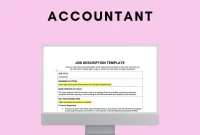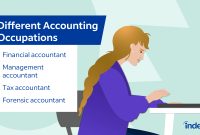# Small Business Accounting Software
In today’s fast-paced business environment, keeping track of your finances is more crucial than ever. Small business accounting software has become an indispensable tool for entrepreneurs and business owners. Whether you’re managing a startup or a growing enterprise, the right accounting software can simplify your financial tasks, streamline operations, and help you make informed business decisions.
Why Accounting Software Matters
Accounting software provides a range of features that are designed to make financial management easier and more efficient. From tracking expenses and income to generating detailed financial reports, these tools offer a comprehensive solution for managing your business finances.
Key Benefits of Using Accounting Software
- Efficiency: Automating repetitive tasks like invoicing and payroll can save you time and reduce human error.
- Accuracy: With precise calculations and record-keeping, you minimize the risk of mistakes that could lead to financial discrepancies.
- Real-Time Data: Access up-to-date financial information anytime, which is crucial for making timely business decisions.
- Scalability: As your business grows, your software can adapt to handle more transactions and more complex financial needs.
Choosing the Right Software for Your Business
Selecting the best accounting software for your small business depends on several factors, including your industry, business size, and specific needs. Here are some considerations to keep in mind.
Features to Look For
When evaluating accounting software, consider these essential features:
- Invoicing and Billing: The ability to create and send invoices, track payments, and manage customer accounts.
- Expense Tracking: Easily record and categorize expenses to monitor where your money goes.
- Financial Reporting: Generate financial statements like balance sheets, profit and loss accounts, and cash flow statements.
- Tax Preparation: Tools to simplify tax calculations and ensure compliance with regulations.
- Integration: Compatibility with other business tools and software, such as CRM systems and e-commerce platforms.
Popular Accounting Software Options
There are numerous accounting software options available, each with its own strengths. Here are some popular choices for small businesses:
QuickBooks
QuickBooks is one of the most well-known accounting software solutions. It offers a range of features suitable for small to medium-sized businesses. With QuickBooks, you can manage invoices, track expenses, and generate financial reports. It also provides cloud-based access, allowing you to manage your finances from anywhere.
Xero
Xero is another popular choice, especially for businesses looking for an easy-to-use interface. It offers robust features like invoicing, expense tracking, and bank reconciliation. Xero also integrates with numerous third-party apps, making it a flexible option for businesses with diverse needs.
FreshBooks
FreshBooks is ideal for small businesses and freelancers. It simplifies invoicing and expense tracking with its user-friendly design. FreshBooks also offers time-tracking features, making it a great choice for service-based businesses.
Wave
Wave is a free accounting software that offers essential features like invoicing, receipt scanning, and financial reporting. While it may lack some advanced features of paid software, it’s an excellent option for startups and very small businesses with limited budgets.
Getting Started with Accounting Software
Once you’ve chosen the right accounting software for your business, it’s time to get started. Here are some steps to help you set up your software and begin managing your finances effectively.
Step 1: Set Up Your Accounts
Start by setting up your business accounts in the software. This includes entering your bank account details, credit card information, and any other financial accounts you use.
Step 2: Customize Invoices and Reports
Most accounting software allows you to customize your invoices and financial reports. Personalize these documents to reflect your brand and meet your specific business needs.
Step 3: Automate Regular Tasks
Take advantage of automation features to streamline repetitive tasks. Set up recurring invoices, automate payroll processing, and use bank feeds to automatically import transactions.
Step 4: Monitor Your Finances Regularly
Regularly review your financial reports to stay informed about your business’s financial health. Use insights from these reports to make informed decisions and adjust your business strategies as needed.
Conclusion
Investing in the right small business accounting software can transform the way you manage your finances. By automating tasks, improving accuracy, and providing real-time insights, accounting software empowers you to focus on growing your business. Whether you opt for QuickBooks, Xero, FreshBooks, or Wave, the key is to choose a solution that fits your unique needs and helps you achieve your financial goals.
Incorporate accounting software into your business operations today to enhance efficiency, accuracy, and decision-making. With the right tools at your disposal, you’re better equipped to navigate the financial challenges of running a small business.



